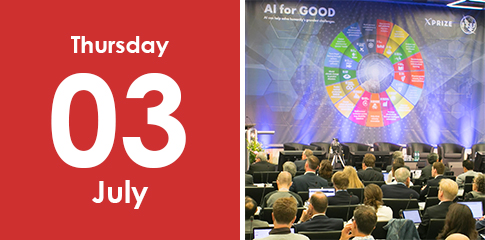1. Addressing grand challenges in social and environmental justice through sustainable finance
Nowadays, sustainable finance, focusing on social and environmental justice, is omnipresent. Achieving these justices means meeting what management now knows as grand challenges: global problems that can only be addressed through coordinated and collaborative international effort. In the sociological sense of the word, these problems are also wicked: intrinsically complex social problems. Together this means that solutions are political, often a result of negotiations between stakeholders with legitimate and maybe conflicting interests, may be valid only temporarily, may not provide a complete technical solution, and may, as a result, not do justice to all stakeholders simultaneously. As such, solutions may need renegotiation later on. Sustainable finance is being designed and implemented through various mechanisms: investor demand, market push, volunteerism, and policy and regulatory approaches. The power of sustainable finance becomes clear if one recognises that the responsible investment industry, for example, counts 3826 signatories, managing USD 121.3 trillion of fiduciary money (2021).
2. The EU Corporate Sustainability Due Diligence Directive: regulations to shape reality
One significant regulatory development currently in its consultation phase is the European Union’s (EU) Corporate Sustainability Due Diligence Directive (CS3D). Once adopted, EU member states will have two years to transpose the Directive into national law. In the words of the EU, this proposed Directive aims to “foster sustainable and responsible corporate behaviour and to anchor human rights and environmental considerations in companies’ operations and corporate governance”. This Directive envisages ensuring that businesses address the adverse impacts of their actions, including in their value chains inside and outside the EU. Given the scope of the Directive and the size and reach of the PRI’s signatories, this Directive may affect many of the companies the signatories invest in.
The material articles of the CS3D proposal and the Committee on Economic and Monetary Affairs commentaries for the Committee on Legal Affairs of the European Parliament and the PRI together show a consensus about the direction and its implementation.
The CS3D proposal and the PRI commentaries have relatively precise norms and compliance checks for on-the-ground implementation. Indeed, the European Parliament wants to overcome the “lack of legal clarity regarding corporate due diligence obligations, the complexity of value chains, market pressure, information deficiencies, and costs”, as “the benefits of due diligence are not widespread among European companies and across economic sectors.”.
Specifically, the CS3D proposal and PRI commentaries speak to concrete forward-looking, legally binding duties, precisely defined, and partly fiduciary accountability for adverse social and environmental impact. Supporting these legal duties are a few softer requirements. The most tangible legal responsibilities include member state commitments, multistakeholder recognition, liability for violations and adverse impact, organisational implementation and compliance requirements, including assurances and reporting, and value chain due diligence inclusion. This calls for nothing less than changed corporate administrative arrangements and efficient implementation.
3. Corporate change on the horizon: where can stakeholders influence?
Given the explicit CS3D focus on defining and implementing legally binding text, the question is: is there any space for stakeholders to influence this draft directive? To that end, one can think about the following options. Given this is a crisis-driven directive, some hard law clauses may need to include sunsetting legal text indicating temporary validity. This opens possibilities for revision of the legal text if and when specific meaningful parameters change. Further, some clauses could be influenced by their hardness level, precisely the level of a legal obligation, the precision of legal text, and the necessity for compliance checks. The CS3D proposal may benefit from stakeholder-based soft law additions, which describe non-legal aspects of the envisaged change. For example, setting standards around expected behaviours for corporations, directors and staff. However, corporations may need to initiate a cultural change programme where supporting values are operationalised in cultural artefacts and where growth and innovation are understood to support multiple stakeholders. This can be reflected in corporate and supply chain governance, incentive systems, and investment organisations. These non-legal aspects can also include where and how advocacy may and should play a role: where responsibility lies and what the audiences are.
4. Policy for social and environmental impact: an agenda for stakeholders
In its ambitions to address the grand challenge of reaching social and environmental justice, the EU will implement the Corporate Sustainability Due Diligence Directive soon. This can cause a paradigm shift and set off major change programmes for corporations regarding how they are organised and operate in their value chains. This is especially so, as much of the fiduciary asset owner community supports the hard law and implementation character of the EU’s draft CS3D-directive. This can cause a significant move towards making finance more sustainable. Various stakeholders will want to understand where there is space for influencing this draft directive and how to deal with it in practice. This space is available in including legal sunsetting clauses, in influencing the strength of hard law clauses, and in non-legal aspects, such as setting values-based standards for expected behaviour for corporations, directors and staff. All in all, a significant next step for all stakeholders, well beyond the EU’s borders.
Dr. Eelco Fiole
Participant in the Executive Programmes in Environmental Governance and Policy Making at the Geneva Graduate Institute.
Adjunct professor of Finance Ethics at the University of Neuchatel and as managing partner of Alpha Governance Partners, active in sustainable and digital investment management. The full study is available from the author on request.









Excellent Blog Entry! Thank you Eelco
Thank you Sascha!